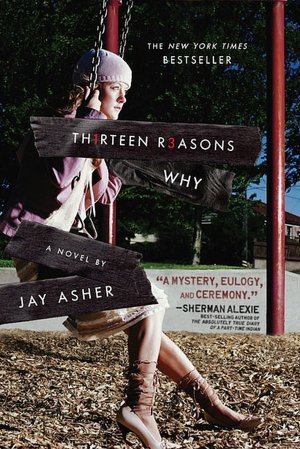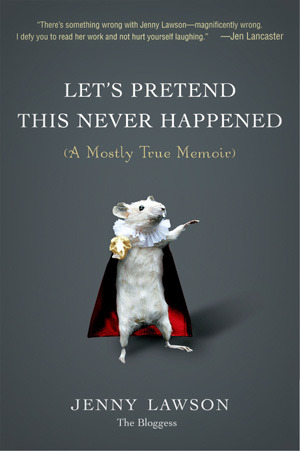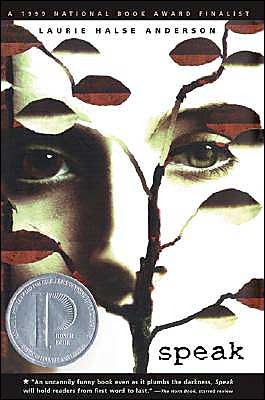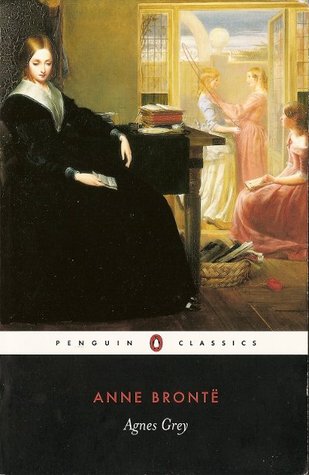National Book Award Finalist
Melinda Sordino busted an end-of-summer party by calling the cops. Now her old friends won't talk to her, and people she doesn't even know hate her from a distance. The safest place to be is alone, inside her own head. But even that's not safe. Because there's something she's trying not to think about, something about the night of the party that, if she let it in, would blow her carefully constructed disguise to smithereens. And then she would have to speak the truth. This extraordinary first novel has captured the imaginations of teenagers and adults across the country.
Grade: C+ Library Rental/Must Read
For me, this book suffered from one of my biggest pet peeves: The Big Bad Secret. It is when the main character has a secret or a horrible thing has happened that he or she feels needs to be kept secret. And it’s obvious. And it’s the big mystery or plot twist reveal. And it’s like the only big thing going on in the story. I just feel it’s annoying and lazy for a novel to do this. I always feel like it is doing this:
Me: What is it?
Novel: Secret, secret, secret! But I can’t tell you what it is because it’s uber secret.
Novel: Secret, secret, secret. Troubled…
Me: I don’t care anymore.
Novel: But I’m so deep and troubled. Secret, secret, secret. You’ll never be able to guess what it is.
Me: Is it _____?
Novel: Secret, secret, secret. (Psst...if you stay for a couple more chapters, I might be comfortable enough to tell you…)
Me: …
Novel: You were right.
Me: … (le sigh)
Trust me: I wanted to like this book. It’s gotten awards and great reviews. The cover is pretty cool too. But I just couldn't seem to find it in my heart to love it. It probably didn't help that I’m not the biggest fan of what I like to call “realistic” contemporary fiction, but I was open to it (even though I was required to read it for school).
Perhaps, that’s an important note to add as well. Unlike a lot of people, I don’t get annoyed at required reading because they are required. I love to read. I love it when I am given new awesome books to read that I might not have otherwise found. What I dislike are required books that I don’t think are good. Because here’s the thing, if I’m required to read it for school (especially now that I’m in college), I don’t just expect it to be good: I expect it to be really good because it’s required and won the it-must-be-read-in-my-class award. Plus, some people treat classics and required reading like they are the best books in the world and all the other books you have ever read in your free time were ugly peasants.
The other thing is I always got the feeling from this book like it was trying so hard to be artsy and funny at the same time. Unfortunately, these two things didn't really work well off of each other. Often times I didn't find the book as funny as I felt it wanted to be and the funny bits brought down any artsy, thought-provoking vibes this book was trying to give.
The other, other thing is that since The Big Bad Secret is the main plot thread the main character Melissa comes across as throwing a pity party and begging for sympathy way too long.
As well, the romance/relationship feels forced and unfitting for this kind of story. I know that the outcome of the story needed to be hopeful, but I feel like throwing a nice guy in here was kind of the easy way out.
Since I feel like I’m being way too negative, here are a couple of pros:
-Easy to read
-Occasionally funny
-Accurate representation of school and the teenage mind (for the most part)
So, should you get this book? Well, it wasn't my favorite, but if the problems I've listed don’t seem like an issue to you, then go for it.
Completion: A
It’s a short easy read. Even though I wasn't a huge fan, it wasn't hard to breeze through the pages.
Writing/Style: B-
The style was hit and miss for me. Sometimes it worked, but, more often than not, it didn't. It is simple to read though. Also, the paragraphs were spaced out into blocks, for some reason…
Characters: C+
I liked Melissa. She seemed realistic and she did have her funny and emotional moments. However, with the story and the secret being stretched out so long, Melissa as a character indirectly suffered. I started to get tired of her being sad and troubled all the time, and I should never feel that way! I felt bad for getting annoyed because she has a good reason for being messed up, but I thought it was executed poorly. As well, a lot of the other characters didn't feel as fleshed out.
Plot/Pacing: D
This book consists of Melissa’s day to day life. Classes, family, friends. That’s it really. And because Melissa is angry and sad all the time, she tries to avoid people, making the opportunity of interesting scenes rare. I really found it hard to stay interested in the story and I felt disconnected from Melissa and her circumstances.
World-Building/Atmosphere: C+
I can’t even remember where Melissa lives. Not the state. Not the town. Sure, the overall high school feel is there and pretty solid, but I never had nothing more than a functional understanding of the world and atmosphere.
Sub-genres (Romance, Humor, Mystery, etc.): D
The humor, as I've said before, is good overall, but the funniness was not enough to save it. The romance is light, but it just didn't feel right in combination with the main plot (I would be more specific, but it’s part of The Big Bad Secret). And speaking of which, the mystery element failed because I guessed it at the very beginning.
Question Time!
1. Did you like Speak? If so, let me know what you liked about it. If not, tell me too so I know I’m not alone. :)
2. What is one of your book pet peeves?




